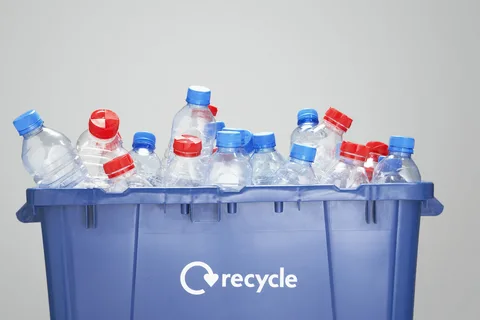Net Worths
Key Differences Between Single-Use & Recyclable Plastics

The debate on plastics is nothing new to the modern world. The escalating concerns surrounding pollution, marine life endangerment, and the overall impact on our environment have thrust plastics into the limelight, urging consumers and manufacturers to be more aware of their choices.
To understand the conversation at its core, it’s essential to differentiate between single-use and recyclable plastics. Here’s a deep dive into these two categories.
1. Definition and Types
Single-Use Plastics:
These are plastics intended for one-time use before they are thrown away or recycled. Often, they cannot be recycled due to the nature of their composition. Examples include plastic straws, shopping bags, and most packaging materials.
Recyclable Plastics:
As the name suggests, these are plastics designed with the intent of being reprocessed and reused. Items like plastic bottles, containers, and certain packaging materials usually fall into this category.
2. Environmental Impact
Single-Use Plastics:
The environmental toll of single-use plastics is undeniable. When discarded improperly, they end up in landfills, oceans, and other habitats, leading to soil, water, and air pollution. Not to forget, the disintegration time for such plastics can span hundreds to thousands of years, exacerbating their negative effects.
Recyclable Plastics:
Though not entirely devoid of environmental consequences, recyclable plastics certainly offer a more sustainable alternative. When effectively recycled, they can reduce the demand for new plastics, thereby lowering the environmental degradation caused by the extraction and processing of virgin plastic materials. However, not all recyclable plastics are recycled, which can, at times, lessen their positive impact.
3. Economic Implications
Single-Use Plastics:
While often cheaper to produce and purchase, the long-term economic implications of single-use plastics can be severe. Cleaning up the environment, dealing with waste management, and addressing health concerns related to plastic pollution can lead to substantial costs.
Recyclable Plastics:
Recycling plastics can lead to job creation in the recycling sector and can reduce the economic strain caused by environmental cleanup. While the initial cost might be slightly higher, the long-term economic benefits, both direct and indirect, make them a worthy investment.
4. Health Concerns
Single-Use Plastics:
The toxins from single-use plastics, especially when they degrade, can leach into the soil and water. These toxins can then enter the human food chain, leading to a myriad of health issues ranging from hormonal imbalances to cancer.
Recyclable Plastics:
While they are designed for reprocessing, it’s worth noting that not all recyclable plastics are completely safe. The repeated process of recycling can sometimes reduce the plastic’s quality, potentially releasing harmful chemicals. However, compared to single-use plastics, they still pose a lesser health risk when managed appropriately.
5. Usability and Application
Single-Use Plastics:
Their primary advantage is convenience. Lightweight, cheap, and easily available, they are often used for packaging and carrying goods.
Recyclable Plastics:
These are more versatile. Apart from packaging, they are employed in more durable applications, such as furniture, textiles, and automotive parts. The potential for repeated use without significant degradation enhances their application scope.
Conclusion: The Path Forward
The differentiation between single-use and recyclable plastics is not merely academic. It impacts our environment, economy, health, and the very future of our planet. While recyclable plastics present a more eco-friendly alternative, it’s important to remember that the best plastic is the one we don’t use. Reduction in plastic consumption, combined with more sustainable choices, can help us pave the way to a greener future.
In the words of a well-known supplier in the industry, Simply Plastics, the key is not just in producing recyclable plastics but ensuring they are recycled and, more crucially, understanding the need to reduce our dependency on plastics altogether.





















































